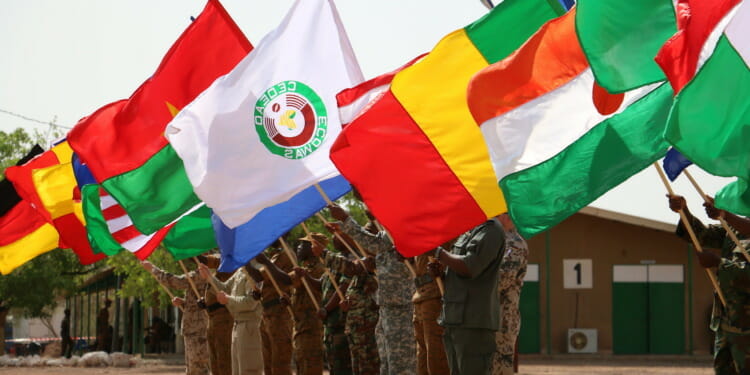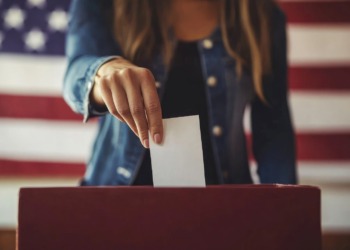On September 5, in the early hours of the morning, Alpha Condé, the first President of Guinea democratically elected since its independence from France, was deposed by the military. The coup was led by Colonel Mamady Doumbouya, the head of Guinea’s special forces, who later that day appeared on state television declaring “We are no longer going to entrust politics to one man, we are going to entrust it to the people.”
Guinea is no stranger to military coups and suffered through them in 1984 and 2008, just two years before Condé was democratically elected. Embezzlement and drug trafficking were rife under the rule of former coup plotters Lansana Conté and Moussa Dadis Camara, however, it is unclear if conditions were much better under Condé.
Although Condé initially appeared as a beacon of democratic hope, the situation deteriorated during his second term as the intimidation and detention of political opponents grew and later evolved into violent clashes between protesters and security forces. After his second election, Condé sought to revise the constitution to allow him to revoke the two-term limit and continue his rule. He succeeded in his revision and third election, although few respect the outcome of the election as being anything but a sham.
His actions were met with wide-scale protests which were brutally repressed with at least 50 people killed, many more injured and numerous opposition figures jailed. Many of these political prisoners were supporters of Cellou Dalein Diallo, Condés perennial electoral opponent. One of the junta’s initial actions was to demand the release of these political prisoners and on the 7th of September 79 prisoners were released.
Although some civilians conveyed concern about the military takeover, citing the conditions under previous coup plotters, many Guineans rejoiced and celebrated the coup, cheering “Liberté! Liberté!” in the streets of the nation’s capital, Conakry. Guinea’s economy had grown under Condé but it was fuelled by the mining of bauxite – an ore used to produce aluminium – and few civilians significantly benefited from the wealth it created. In fact, for many, the standards of living decreased as the livelihoods of rural communities were disturbed by mining companies and millions of youth remained jobless.
Colonel Doumbouya, however, has promised to lead differently and in consultation with the people of Guinea. After deposing Condé, he dissolved the state’s constitution, government and all of its institutions. He insisted there would be no witch-hunt of government officials and Condé has been confirmed to be in good health by envoys from ECOWAS.
ECOWAS (Economic Community of West African State) is West Africa’s main political and economic bloc and initially denounced the coup and suspended the country’s membership but did not impose sanctions. On Friday, a delegation from ECOWAS visited Conakry to discuss the appointment of a credible civilian prime minister in a timely manner to direct Guinea back towards constitutional order.
The junta have opened a four-day series of meetings about the future of the country, initially meeting with officials from Diallo’s party and other opponents of Condé. It will also welcome religious leaders as well as leaders from Guinea’s mining industry. The coup has already sent the price of aluminium ore bauxite to a ten-year high but the leaders are keen to reassure industry leaders that operations will continue as normal to ensure the stabilisation of bauxite and gold exports and in turn the country’s economy.
Throughout the talks, pressure will be mounted on the military leaders to commit to a transition to a civilian-led government in a set timeframe. ECOWAS is likely to mediate these discussions and the transition, imposing sanctions if the coup leaders refuse to submit. This is the course of action that was taken after Mali’s coup in 2020 and it is likely that Doumbouya will also be expected to give up power within roughly a year.
Related Articles: Democracy in Guinea: Destroyed or Restored? | The Decade of Action – Africa for the Sustainable Development Goals
The power and confidence imbued in ECOWAS however may be weaker with regard to Doumbouya and Guinea and so it is imperative that other regional powers and organisations such as the UN support ECOWAS in ensuring power is democratically restored and the actions of Doumbouya do not inspire further military coups.
Both Condé and his overthrowers have committed criminal actions in their attempts to hold power and this must be understood even if Damboyua has brought freedom and hope to many Guineans.
Around the world, military rule has rarely succeeded in democratically leading a country, the most recent example being the military junta in Myanmar that continues to violate human rights. At the time of writing, in 2021 there have been five coups around the world (not all successful) which is above the average rate of coups in the 21st century and triggers fear that coups may once again see a comeback.
Coup attempts around the world have become less common and less successful since their peak in the 1970s and 80s. This is partly due to the end of the Cold War and the reduced ability and need for outside superpowers to back coups against governments they disagreed with. However, the havoc and instability caused by Covid-19 have left citizens feeling abandoned by their governments.
If military leaders around the world draw inspiration from Colonel Doumbouya the way he has drawn inspiration from Jerry Rawlings, the rate of military coups may increase. Rawlings was the former President of Ghana who also took power in a coup and ruled originally as a military leader and then later as a democratically elected president. Dombouya was seen quoting Rawlings in his television statement – “If the people are crushed by their elites, it is up to the army to give the people their freedom.”
To avoid this fate, there must be significant action and enforcement from regional institutions such as the African Union (AU) and ECOWAS. ECOWAS has had some success in diluting the power of junta leaders in Mali and enforcing a transition to civilian rule, however, a second coup this year has delayed transition efforts and many have little confidence in the junta’s promises. Mali is not Guinea though. ECOWAS had more influence over Mali as it is a landlocked state without the mineral wealth of Guinea and it had not failed Mali so recently.
During the lawlessness of Condé’s constitutional amendment and sham elections, the FNDC (Front National Pour La Défense De La Constitution) petitioned an ECOWAS Court to seek legal recourse, claiming that Condé’s alteration of the constitutions violates the African Charter on Democracy, Elections and Governance, as well as the ECOWAS Protocol on Democracy and Governance. The FNDC also asserted that the violent suppression of protests violated human rights and the AU and ECOWAS Charters.
ECOWAS did not take action against Condé and his alteration of the constitution, nor did they against Ivory Coast’s President Ouattara, who is said to be Condé’sinspiration. These (in)actions have left many with a lack of confidence in the organisation which it must revitalise if it is going to stand strong in its enforcement of a peaceful and timely transition.
As the junta continue their talks and summits and we wait for a timeline of a transition to be finalised, it is important for institutions like ECOWAS and AU to remain vigilant and united to ensure that Guinea reclaims democratic civilian rule and the legacy of corruption and violation ends with Condé.
Editor’s Note: The opinions expressed here by Impakter.com columnists are their own, not those of Impakter.com. — In the Featured Photo: UN, ECOWAS partners kick-off Western Accord 2016. — Featured Photo Credit: U.S. Army Southern European Task Force, Africa.










